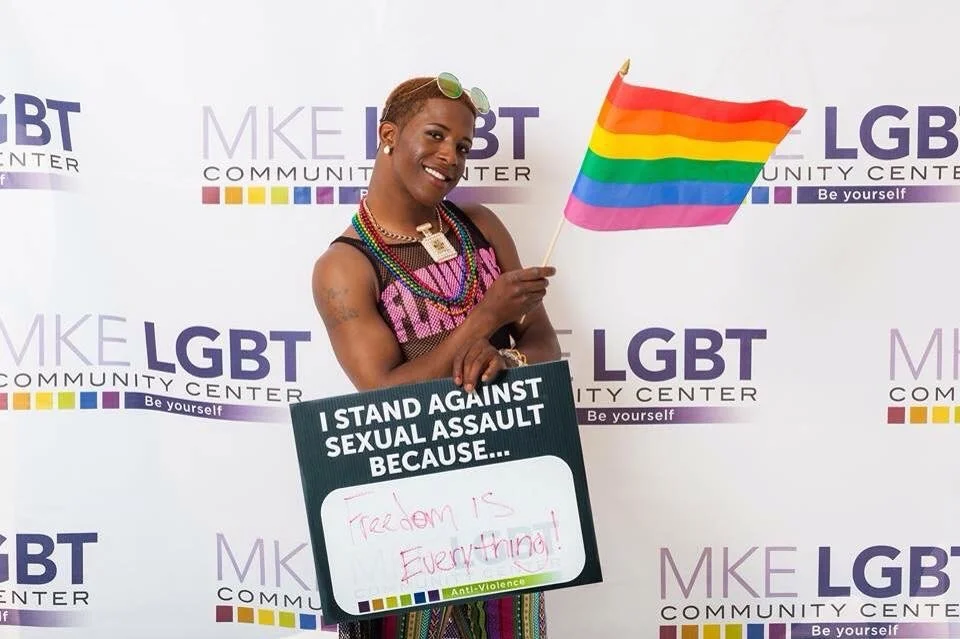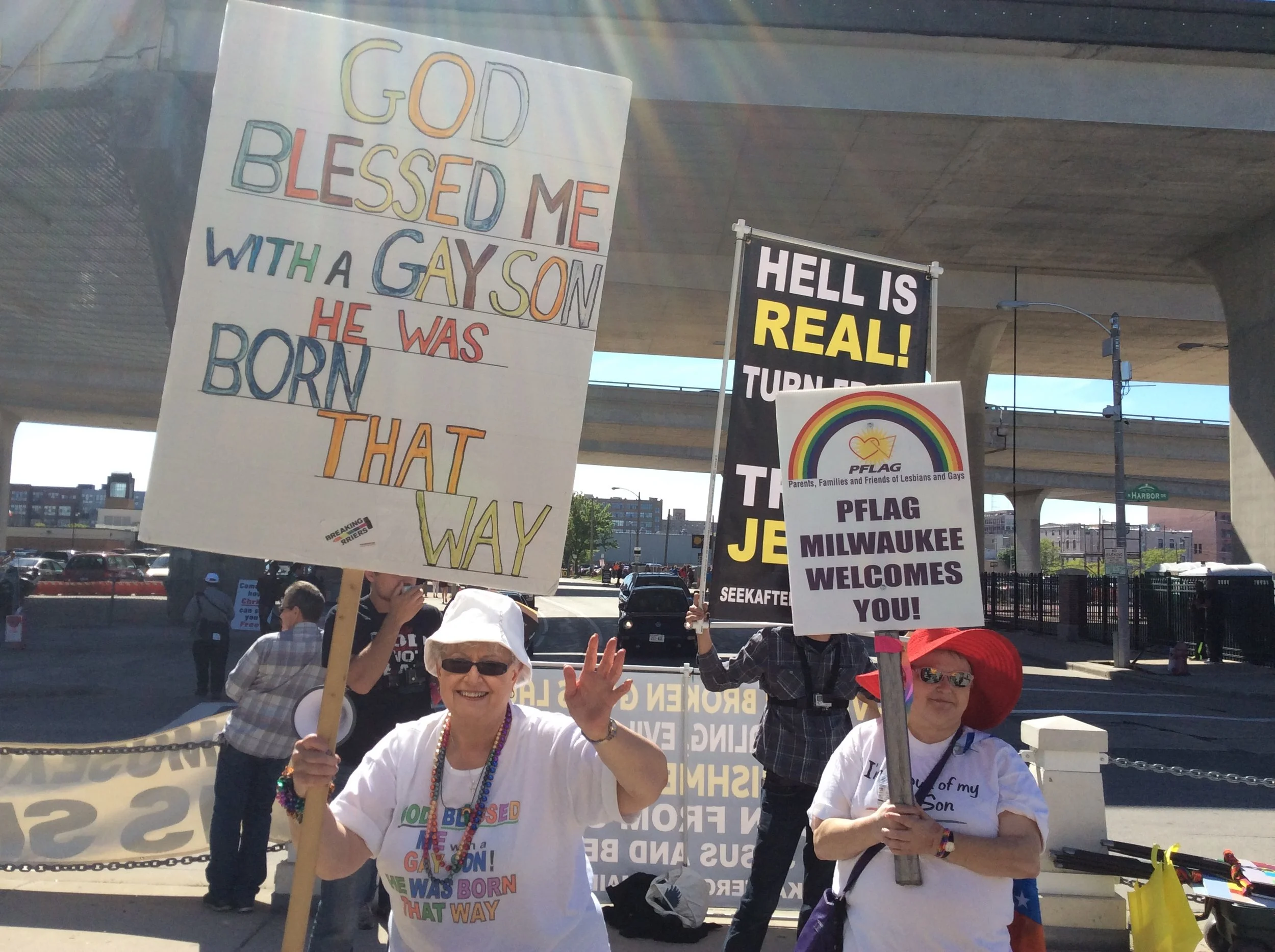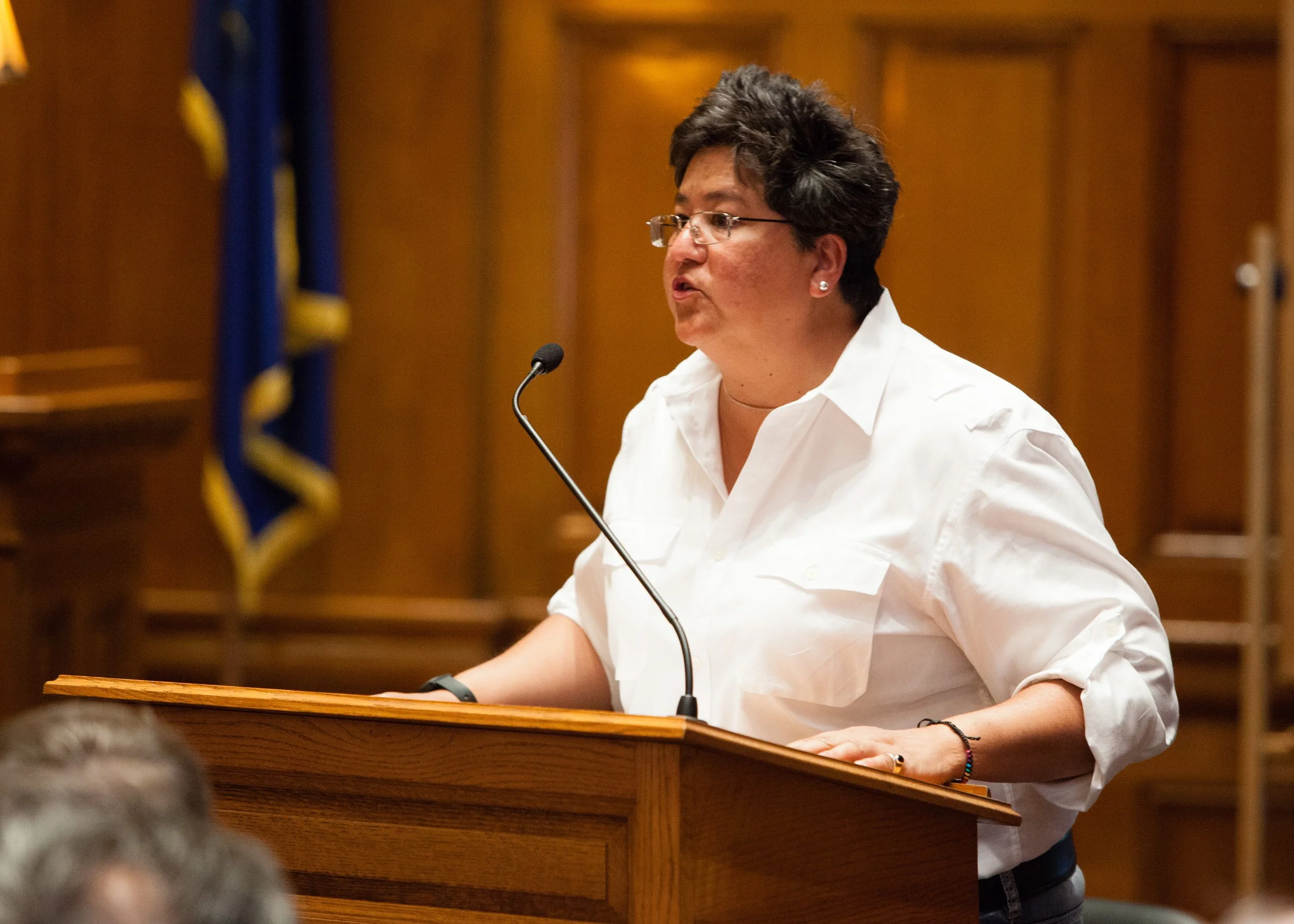OUTspoken Milwaukee
be p
roud.
be heard.
be OUTspoken.
A Movement for Queer Equity + Civic Power
OUTspoken Milwaukee is a Milwaukee LGBT Community Center-led initiative designed to unite voices and collaboration among queer organizations, strengthen advocacy, and empower current and emerging leaders.
As the behind-the-scenes catalyst and think tank, it enables queer organizations to move in the same direction, at the same time, with fewer gaps and less duplication. By gathering insights from organizations on the ground, tracking emerging issues, and translating that information into clear priorities, practical strategies, and shared messaging that partners can use.
Why It Matters
LGBTQ+ residents experience higher rates of housing insecurity, violence, and health disparities.
Queer and Trans youth are twice as likely to face homelessness.
Milwaukee’s queer-serving organizations fill critical service gaps — often with limited resources.
Investing in these programs means investing in public safety, health, and a sense of belonging for all.
give proudly.
give now.
join the movement
Current Issues
The City of Milwaukee currently lacks a dedicated line of funding for LGBTQ+ programs and services. OUTspoken Milwaukee is advocating for the creation of an LGBTQ+ Equity Fund in the City’s FY2026 budget — a modest but vital investment in mental health, youth leadership, trans wellness, and safety.
This fund would:
Strengthen partnerships between City departments and queer-led nonprofits.
Expand access to affirming health and safety programs.
Ensure queer equity is built into city policies and reporting.
Why It Matters
Funding Queer Milwaukee Strengthens Everyone
LGBTQ+ residents experience higher rates of housing insecurity, violence, and health disparities.
Queer and Trans youth are twice as likely to face homelessness.
Milwaukee’s queer-serving organizations fill critical service gaps — often with limited resources.
Investing in these programs means investing in public safety, health, and a sense of belonging for all.
Take Action
Your Voice Matters — Here’s How to Be OUTspoken
Email City Leaders: Use our pre-written message to urge your Alder to support the Equity Fund.
Sign the Petition: Join hundreds of Milwaukee residents calling for queer equity funding.
Donate Now: Directly support this critical work and ensure our advocacy continues.
Share Your Story: Tell us how public investment in LGBTQ+ programs would impact your life.
Join the Coalition: Become part of OUTspoken Milwaukee’s network of queer advocates and allies.
sign the petition




